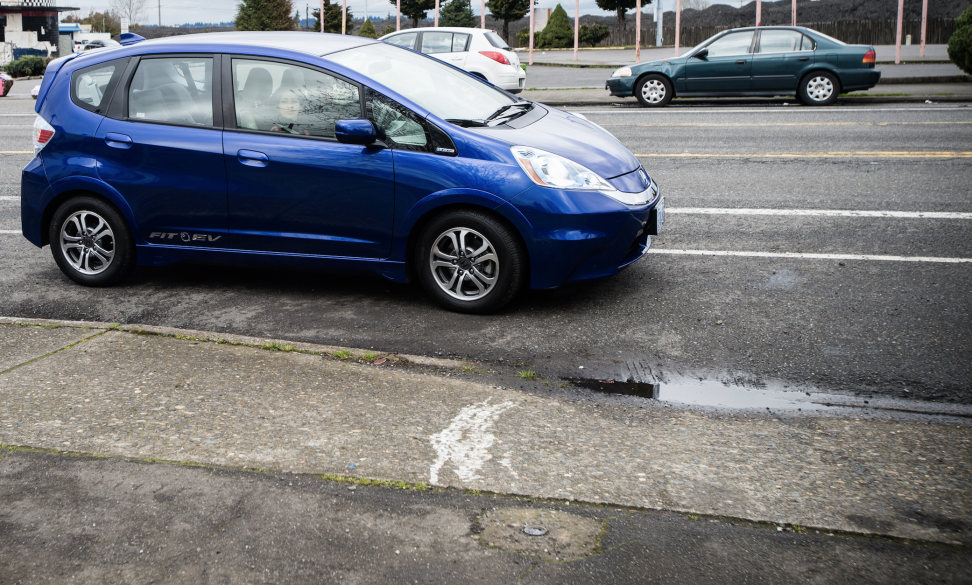
EVs at the Oregon Food Bank
By: Anne Ramzy
On an average day, the Oregon Food Bank has hundreds of operations going on throughout the state. From large pickups and deliveries of food to meeting with local food banks and outreach specialists, the OFB collectively logs a staggering number of miles on the road.
To meet their transportation demands, Food Bank employees often wind up driving their personal vehicles to and from the Beaverton and NE 33rd locations, billing the Food Bank for gas and wear and tear on their vehicles. With nearly half of the Food Bank’s 170 employees needing to use their personal vehicles more than once per week, the staff were inadvertently prevented from bike commuting and taking public transportation to work.
With an aim to promote employee wellness and save on reimbursement costs, the Food Bank and Forth designed a pilot program for staff to use two electric cars for offsite meetings. Beginning in December 2017, American Honda Motors, Inc placed one Honda Fit EV at the NE 33rd Food Bank location and one at their Beaverton location for employee use. Two Blink EVSE chargers were also donated and installed at each location. The program is open to all Food Bank employees, and roughly 30 drivers have enrolled.
Christine Hadekel, Statewide Education and Outreach Manager at the Food Bank, surveyed the pool of drivers after 6 months to see how they felt the pilot was going. Out of the 16 respondents, nearly half were not familiar with electric vehicles prior to the pilot. After a few months of use, over 60% were ‘Very Satisfied’ with the EVs. In the first 3 months alone, nearly 800 miles were driven in the EVs.
Another added benefit of having EVs onsite for staff to use is that the Food Bank is now able to offer job positions to candidates who do not own cars.
One of the most frequent observations was that the employees wished the EVs had a higher range or that the Food Bank had a plug-in hybrid option. Many of the meetings that the employees go to are in rural areas such as Estacada or to Salem.
Despite the EVs having a range of 80 miles, nearly 70% of employees surveyed found that having a staff car available for use decreased the burden of needing a car to complete their work. Personal opinions of the EVs was high as well, as nearly 90% of the respondents said they are or would consider purchasing an EV.
With the success of the pilot, the Food Bank has been searching for an EV to purchase for permanent use. Although a near-term EV purchase may be a small vehicle for staff use, the Food Bank is hoping to develop an electric future. A long-term “pie in the sky” hope, says Hadekel, is to one day have an all electric medium-duty truck to help make pickups and deliveries all over the state.


